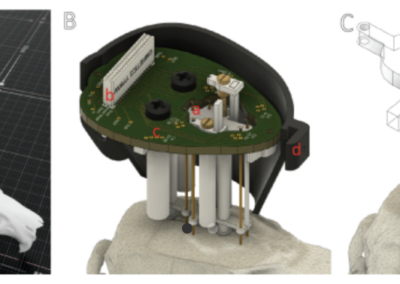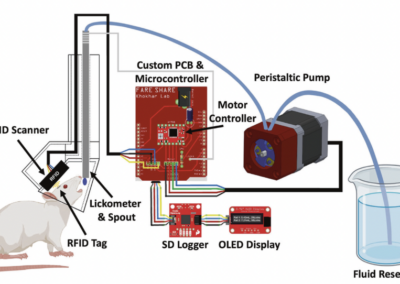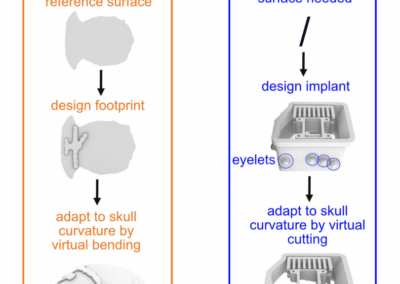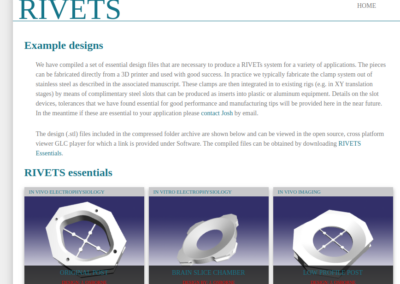Leila Allen and colleagues in Tim Allen’s lab at Florida International University recently developed RatHat, a self-targeting printable brain implant system. Below they describe their project: “There has not been a major change in how neuroscientists approach stereotaxic methods in decades. Here we present a new stereotaxic method that improves on traditional approaches by reducing costs, training, surgical time, and aiding repeatability. The RatHat brain implantation system is a 3D printable stereotaxic device for rats that is fabricated prior to surgery and fits to the shape of the skull. RatHat builds are directly implanted into the brain without the need for head-leveling or coordinate-mapping during surgery. The RatHat system can be used in conjunction with the traditional u-frame stereotaxic device, but does not require the use of a micromanipulator for successful implantations. Each RatHat system contains several primary components including the implant for mounting intracranial components, the surgical stencil for targeting drill sites, and the protective cap for impacts and debris. Each component serves a unique function and can be used together or separately. We demonstrate the feasibility of the RatHat system in four different proof-of-principle experiments: 1) a 3-pole cannula apparatus, 2) an optrode-electrode assembly, 3) a fixed-electrode array, and 4) a tetrode hyperdrive. Implants were successful, durable, and long-lasting (up to 9 months). RatHat print files are easily created, can be modified in CAD software for a variety of applications, and are easily shared, contributing to open science goals and replications. The RatHat system has been adapted to multiple experimental paradigms in our lab and should be a useful new way to conduct stereotaxic implant surgeries in rodents. RatHat is freely available to academic researchers, achieving open science goals. Academic and non-profit researchers interested in receiving the 3D files can contact Dr. Timothy Allen (tallen@fiu.edu). We will first provide you a simple noncommercial license to be executed by your institution, and upon completion, printable and editable 3D files of the implant system. Our responses are fast, and all files are provided immediately after receiving the aforementioned document. Our goals are noncommercial, and our only interests are to share RatHat as widely as possible in support of our open science goals and to improve the pace of discovery using chronic brain implant systems for behavioral studies.” The Allen lab has provided a video tutorial on how to implant RatHat, which you can view here on youtube. For more details, you can check out the preprint here.RatHat: A self-targeting printable brain implant system
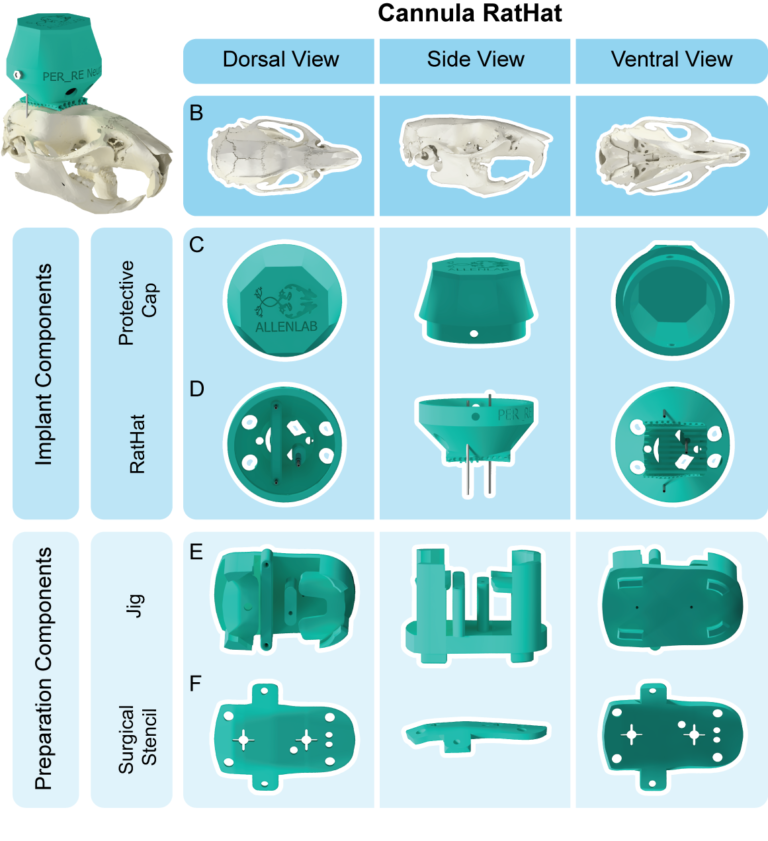

Paper and Tutorial
Have questions? Send us an email!

